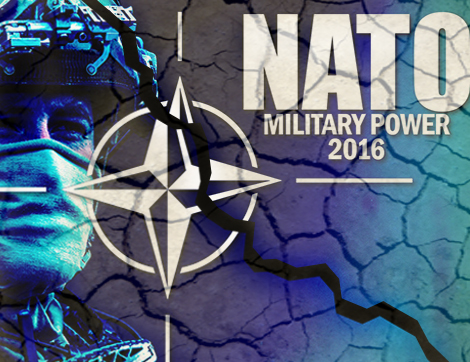
• U.S. finds Europeans not so keen to start a war with Russia in Baltics, Arctic.
By Richard Walker —
While the North Atlantic Treaty Organization (NATO) continues to taunt, bait and encircle Russia by placing missiles near Russia’s borders, major cracks have begun to appear within NATO among its member states.
To the shock of NATO’s leaders, on June 16, days after NATO completed Anakonda 2016, the biggest military exercise of its kind held in Poland, Bulgaria publicly torpedoed NATO’s plans to establish what it had planned to call its Black Sea fleet.
Emigrate While You Still Can! Learn More . . .
Somewhat ironically perhaps, the fleet was actually listed in NATO’s classified files as a “flotilla” to be led by the alliance’s three Black Sea members, Bulgaria, Turkey, and Romania.
The planned fleet had an element of farce and was at best an ill-conceived ploy. In reality, Bulgaria, Turkey, and Romania lack the ships to form a naval fleet likely to impress Russia.
Turkey, for example, has old diesel-operated submarines that can only remain submerged for seven days at a time, while Bulgaria and Romania possess an odd mixture of aging naval vessels. Still, NATO was determined to press ahead, believing the existence of a fleet, even if it were just a tiny flotilla, would allow major NATO players like the United States and Britain to plan exercises with it.
It is little understood that Black Sea naval rules, established by the Montreux Convention Regarding the Regime of the Straits of 1936, only permit the U.S. and powers like Britain, which do not have land adjoining the Black Sea, to enter it and remain there for at most 21 days at a time. Large vessels like aircraft carriers are not permitted.
Because of those restrictions, NATO had hoped that by having Bulgaria, Turkey, and Romania form a so-called Black Sea fleet it would provide NATO with an excuse for organizing large naval exercises on the Black Sea within sight of Russia and its powerful Black Sea navy based in the port of Sevastopol.
It therefore came as a shock to NATO, and no doubt Washington, which foots most of NATO’s bills, when Bulgarian Prime Minister Boyko Metodiev Borissov declared on June 16 that his country would not be part of any NATO Black Sea fleet plans. He hinted that the plans had not been discussed with or agreed to by him. Instead, they reflected an unconstitutional arrangement between his foreign minister and NATO and would not stand. According to NATO rules, major military plans require unanimity among members, so Borissov’s decision scuppered the NATO flotilla before it could be launched.
“I don’t need a war in the Black Sea,” Borissov told reporters.
His announcement sent shockwaves through NATO headquarters, coming weeks before a planned NATO summit to be held in Warsaw on July 8 – 9. NATO chiefs had hoped to use the occasion to herald the creation of their new Black Sea fleet.
The Bulgarian prime minister’s willingness to break with Washington and NATO’s increasingly anti-Russian strategies echoed a growing disenchantment within the alliance whose new members, Poland and Romania, as well as the Baltic states of Latvia, Estonia, and Lithuania, have been pushing for tougher anti-Russian military policies. With support from hardliners in Washington, the newcomers have been persuading NATO top brass to develop a greater militarization of their borders with Russia. The Baltics in particular favor NATO setting up an Arctic command. Such a move worries not only Bulgaria, but also France and Germany, which fear this baiting of Russia could have unforeseen consequences.
Some observers have pointed to how NATO has been bringing non-aligned Arctic states like Sweden and Finland into the NATO camp by persuading them to join in NATO military exercises. From a Russian perspective, it is easy to see how Moscow feels it is being squeezed and hemmed in by NATO’s expansionist strategies, with the Arctic the next region to see NATO expansionist moves.
The Heritage Foundation is among those calling for NATO to use its July summit in Poland to announce its presence in the Arctic and plan military exercises there. The goal would be to establish a claim to the region, which may hold some of the world’s largest energy reserves, more accessible now because of ice melting.
One of the issues not being addressed publicly by NATO is that Turkey has not been fulfilling its obligations to NATO, refusing to provide troops for major exercises. NATO intelligence believes Turkey has most of its troops committed to its border with Syria and to its conflict with its Kurdish population.
Turkey is nervous about antagonizing Russia. Following its shooting down of a Russian fighter jet over Syria in 2015, it has been hurt economically by Russia’s trade sanctions. Therefore, Turkey’s NATO role has diminished, further weakening the NATO alliance.
Richard Walker is the pen name of a former N.Y. news producer.

